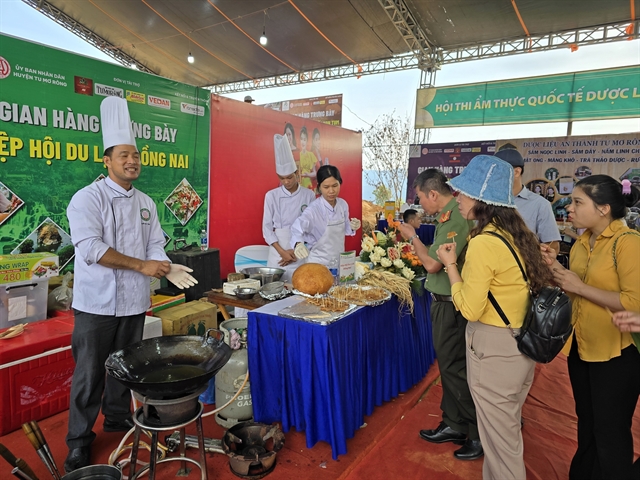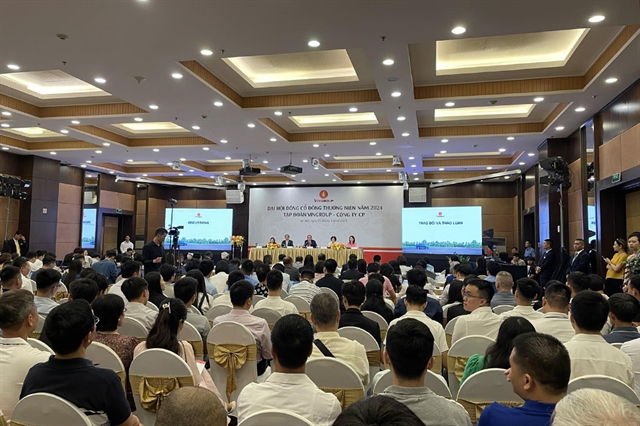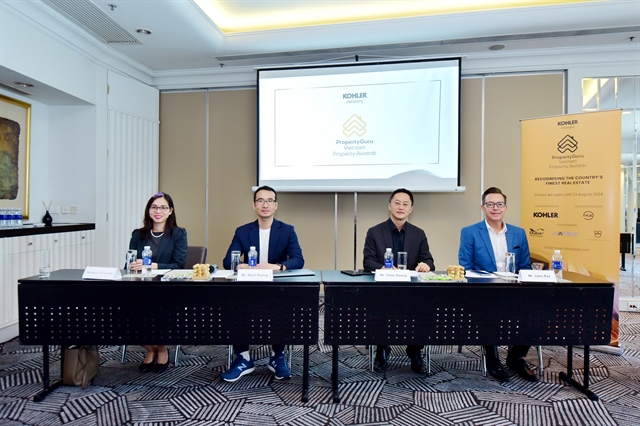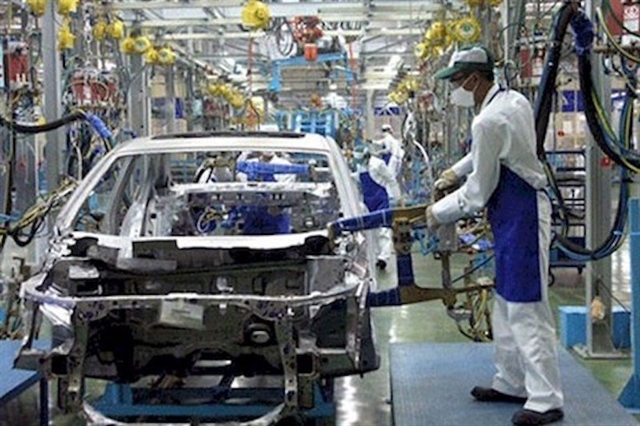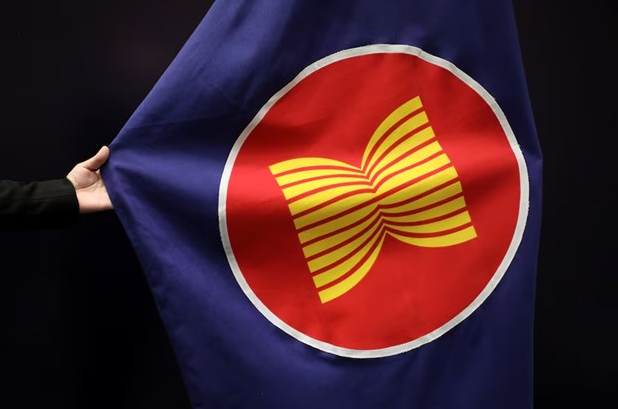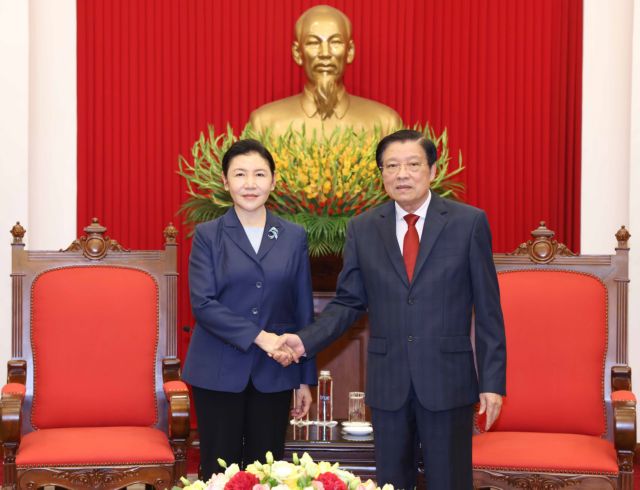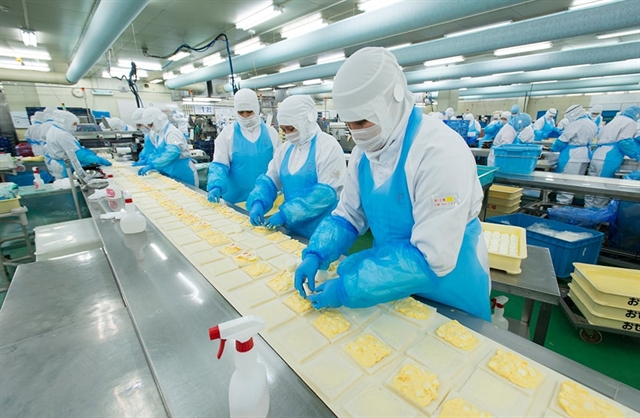 Society
Society

Việt Nam has successfully produced a combined vaccine against measles and rubella that expectedly would benefit some 1.5 million children and thousands of women in fertility ages throughout the country with possible cheaper and timely vaccination.
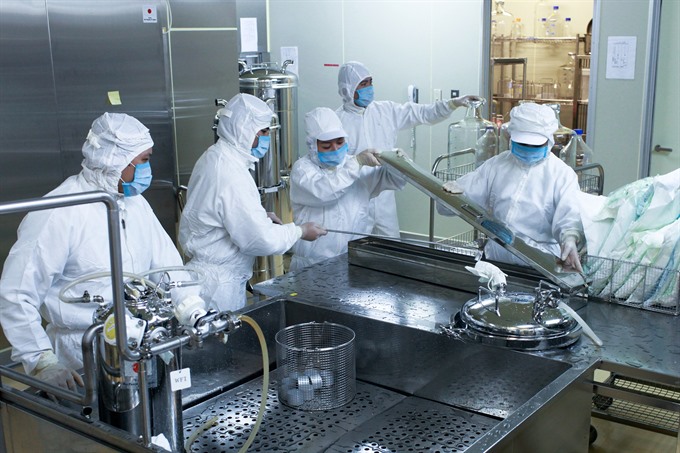 |
| POLYVAC staff work on producing a measles-rubella vaccine. — Photo courtesy of Japan International Co-operation Agency |
HÀ NỘI — Việt Nam has successfully produced a combined vaccine against measles and rubella (MR) that can benefit around 1.5 million children and thousands of women preparing to get pregnant.
Domestic production of this vaccine will allow for cheaper, more timely vaccinations, experts said at a conference held in the capital city yesterday.
The MR vaccine, produced by the Hà Nội-based Centre for Research and Production of Vaccines and Biologicals (POLYVAC), has received the Health Ministry’s approval of its clinical trial results, confirming safety and quality standards.
The achievement was made possible by a technology transfer project aiming to strengthen the nation’s capacity to produce MR vaccine. It was funded by the Japan International Co-operation Agency (JICA).
“Rubella has become a highly communicable disease in Việt Nam in recent years; we experienced a large nationwide rubella epidemic in 2011,” POLYVAC director Nguyễn Đăng Hiền told the media yesterday.
“The disease is specially dangerous for pregnant women as it may cause miscarriages and stillbirth. For babies, there’s the risk of congenital rubella syndrome, and they could suffer hearing loss or brain damage,” Hiền said.
Many expecting mothers in Việt Nam had to end their pregnancy during the 2011 rubella epidemic due to a shortage of imported vaccines, he added.
Seeing the urgent need for the vaccine, the Ministry of Health assigned POLYVAC, which had successfully produced the measles vaccine in 2009, to carry out a project to research and produce a combined vaccine against both measles and rubella. The project began implementation in May 2013 with an investment of JPY700 million (around US$6.7 million).
Hiền said that after receiving the Health Ministry’s approval for its clinical trial results, the centre was preparing an application for getting a product licence so that it could be used for the national expanded immunisation programme, which gives free vaccinations to Vietnamese children.
“We are still calculating the price of the vaccine, but our experience is that locally-made vaccines are always cheaper than imports,” Hiền said.
With the MR vaccine, Viet Nam now has the ability to produce 11 of the 12 vaccines used in the national expanded immunisation programme.
“This is very significant because it shows that Việt Nam can take the initiative when faced with emergency situations,” Hiền said.
A batch of MR vaccines can be produced in a month at home as against the six months it takes for importing it after completing due procedures.
POLYVAC plans to produce 7.5 million doses a year and with annual demand estimated at 3-4 million people a year, the centre can think of exporting it to other countries, according to Hiền.
During project implementation, Kitasato Daiichi Sankyo Vaccine Co. Ltd (KDSV) sent 197 experts to Việt Nam to assist POLYVAC with technology transfer and received 36 POLYVAC staff for training in Japan.
Project director Arai Setsuo had high praise for how POLYVAC had co-ordinated and co-operated with project partners.
He said the production of MR vaccine would help control measles and rubella outbreaks in Việt Nam.
Iizima Makiko, an immunisation expert with the World Health Organisation (WHO), said the production of MR vaccine has been a big success.
“It is great that from now on, not only children can benefit from this locally-made vaccine but also adults, especially pregnant women,” she said.
She noted that Việt Nam was among the few countries that can produce vaccines domestically and carry out an efficient national immunisation programme.
Last year, the country’s National Regulatory Authority of Vaccines was officially certified by the WHO, an important step towards exporting vaccines, she added.
Việt Nam is one of 25 countries in the world that can produce its vaccines and the fourth country in Asia which can manufacture the MR vaccine, alongside Japan, India and China. — VNS


